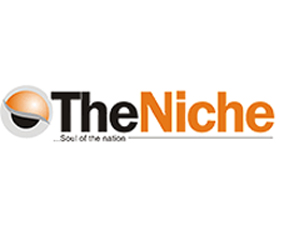By Jeph Ajobaju, Chief Copy Editor
An average N327 million is being generated monthly on all routes operated by the Nigerian Railway Corporation (NRC), which amounts to N3.92 billion yearly, even without taking account of full revenue from the new Lagos-Ibadan route.
Newly commissioned rail projects boosted the coffers, says NRC Managing Director Fidet Okhiria, who gave the monthly figure to the News Agency of Nigeria (NAN) in Abuja.
He said the Abuja-Kaduna route generates an average N265 million monthly, Lagos-Ibadan (N17 million), and Warri-Itakpe (N45 million).
However, The PUNCH has calculated that based on six-day operations, the new Lagos-Ibadan route alone, running at stream, would generate N187.9 per month and N2.25 billion per year.
Okhiria explained that with the introduction of an additional Diesel Multiple Unit, the NRC has increased the number of trips on the Abuja-Kaduna route from eight to 10 daily but increased from four to six on Wednesdays.
He expressed confidence that this would accommodate the increasing number of passengers.
The Lagos-Ibadan line was inaugurated by President Muhammadu Buhari on June 10 and began full service on June 15, after offering partial service. Built at a cost of $1.5 billion, the line stretches 157 kilometres.
The Itakpe-Ajaokuta-Warri rail launched on October 9, 2020 is 326km long, spanning the Southern oil hub of Warri near the Atlantic coast to the major iron ore producing region of Kogi in the North Central, per Nairametrics.
The single-track project, built by the China Civil Engineering Construction Corporation (CCC), was commissioned by Buhari alongside the ancillary facilities yard at the Goodluck Jonathan Railway Complex in Agbor, Delta State.
The Lagos-Ibadan service conveys passengers, the Warri-Itakpe route freights haulage.
Abuja eyes N2.2b yearly from Lagos-Ibadan rail
Up to N2.2 billion may accrue to the treasury yearly from the Lagos-Ibadan line, against the wishes of the Nigerian Union of Railway Workers (NURW) who complain that the fares are too high for most commuters.
The track was built with loans from China, which supplied the trains, constructed the track, and has the contract for the maintenance of the entire project.
All of that means that revenues will go into servicing the loans.
Two trains run on the route. Each does a return trip, making four trips daily, according to data reported by The PUNCH, which it obtained from the NRC.
The first train has one first class coach, two business class coaches, and five standard class coaches. It takes off from Ibadan to Lagos and returns to Ibadan the same day.
The second train has three business classes and five standard classes. It takes off from Lagos to Ibadan and returns to Lagos the same day.
· First class has 24 seats which cost N6,000 each. At full capacity, a return trip fetches N288,000 per day.
· One compartment in the business class has 56 seats, each priced at N5,000. If filled up per journey, a return trip yields N560,000.
· The second compartment has 68 seats costing N3,500 each. At full capacity, a return trip brings in N467,000.
· Each of the five standard class coaches takes 88 passengers who pay N2,500 each. That generates N2,200,000 daily on return trip.
· Overall, the first train is projected to make N3,515,000 per day.
The second train with three business classes and five standard classes is expected to generate N3,712,000 daily if filled to capacity.
Both trains will fetch N7,227,000 per day operating at full capacity on return trips.
NRC customer care department confirmed to The PUNCH the trains operated six days a week up to last week and Sunday service would begin this week.
Based on six-day operations, the two trains running at full capacity will generate
· N7,227,000 per day
· N43,362,000 per week
· N187,902,000 per month
· N2,254,824,000 per year
High fares create service for the reach
NURW General Secretary Segun Esan told The PUNCH that the fares are unrealistic and create an exclusive service for the rich.
His words: “Railway, all over the world, is a social service renderer. The railway is never taken as a profit-making outfit. It serves as the infrastructural mainstay and epicentre of any countries transport economy.
“And it must always be running a tariff regime that is very affordable. So, the idea of fixing a humongous tariff is like indirectly making the train services more of service exclusively for the high-net-worth people. This is number one.
“Number two, coming up with steady system transition from narrow gauge to standard gauge and expanding further at that standard gauge level has become more than expedient like never before for the federal government to take the direction of constituting the Nigerian railway into an autonomous body.
“That is, making it a Federal Ministry of Railway, or Nigerian Railway Authority, or Nigerian Railway Commission.
“Keeping railway under the Ministry of Transportation is not likely to give railway an expected end of breaking even that we anticipate.”
Poor workers’ salary
Esan also lamented workers’ welfare saying, “the N30,000 minimum wage is not giving the workers any future. Many young and employable educated Nigerians are not willing to come and pursue any career path in the Nigerian railway because the salary is next to nothing.
“To buy a single locomotive costs well over and above N500 million. Now, add that to the coaching facilities that will carry the passengers/cargoes.
“Now imagine the driver that will drive such enormous and very expensive assets is being placed on Grade Level 6 or Grade Level 7, where he earns, after all deductions, a take-home pay of N45,000 to N50,000 or thereabout.”


